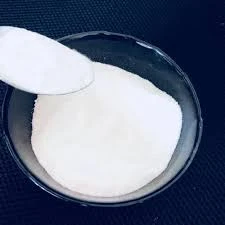
Nov . 25, 2024 20:28 Back to list
hydroxyethyl cellulose uses
The Versatile Applications of Hydroxyethyl Cellulose
Hydroxyethyl cellulose (HEC) is a water-soluble polymer derived from cellulose, a natural polymer derived from plants. HEC has gained significant attention across various industries due to its unique properties, including its ability to form gels, thickening capabilities, and excellent film-forming characteristics. This article explores the diverse applications of hydroxyethyl cellulose, showcasing its importance in multiple sectors.
1. Construction Industry
In the construction industry, HEC plays a crucial role as an additive in mortars, adhesives, and tile grouts. By enhancing the viscosity of these materials, HEC improves their workability and prevents sagging during application. Furthermore, its water-retaining properties ensure that the mortar remains workable for longer periods, allowing for easier application and improved adhesion to surfaces. As a result, using HEC in construction materials not only enhances performance but also contributes to improved durability.
2. Personal Care Products
HEC is widely used in the formulation of personal care products, such as shampoos, conditioners, lotions, and creams. Its thickening properties allow formulators to achieve the desired texture and viscosity, providing a luxurious feel to cosmetic products. Moreover, HEC serves as a stabilizing agent in emulsions, helping to maintain the uniformity and consistency of the formulation. In addition to its functional benefits, HEC is a gentle ingredient, making it suitable for sensitive skin and hair formulations.
In the pharmaceutical industry, hydroxyethyl cellulose is utilized as a binding agent, thickener, and stabilizer in drug formulations. It enhances the viscosity of liquid medications, allowing for better delivery and absorption. Additionally, HEC can be found in controlled-release formulations, where it helps to regulate the release of active ingredients over time, improving the efficiency of the drug. Its biocompatibility further supports its use in various pharmaceutical applications, ensuring safety for consumers.
hydroxyethyl cellulose uses

4. Food Industry
HEC’s versatility extends into the food industry as well, where it serves as a thickening agent, stabilizer, and emulsifier in a variety of food products. Its ability to retain moisture and improve texture makes it an ideal ingredient in dressings, sauces, and bakery products. Furthermore, HEC can enhance the mouthfeel of food products, making them more appealing to consumers. As the demand for clean-label products rises, HEC is becoming a popular choice among food manufacturers looking for natural and plant-derived ingredients.
5. Agriculture
In agriculture, hydroxyethyl cellulose is used as an additive in pesticide formulations and soil conditioners. Its ability to improve the viscosity and stability of pesticide solutions enhances their effectiveness and ensures better application. Additionally, HEC can aid in moisture retention in soils, promoting healthier plant growth. By integrating HEC into agricultural practices, growers can enhance crop yields and contribute to sustainable farming.
6. 3D Printing
Emerging applications of hydroxyethyl cellulose have found a place in the realm of 3D printing. HEC serves as a binder and can be mixed with various materials to create printable pastes. Its excellent film-forming properties assist in the creation of intricate designs with remarkable precision, making it an attractive option for businesses investing in 3D printing technologies.
Conclusion
The multifaceted uses of hydroxyethyl cellulose illustrate its significance across a range of industries. From construction and personal care to pharmaceuticals, food, agriculture, and even 3D printing, HEC serves as an essential ingredient that enhances product performance and consumer satisfaction. As industries continue to innovate, the demand for HEC and similar bio-based polymers is likely to grow, opening new avenues for research and application. By harnessing the unique properties of hydroxyethyl cellulose, manufacturers can not only improve existing products but also pave the way for the development of new and exciting formulations.
-
Versatile Hpmc Uses in Different Industries
NewsJun.19,2025
-
Redispersible Powder's Role in Enhancing Durability of Construction Products
NewsJun.19,2025
-
Hydroxyethyl Cellulose Applications Driving Green Industrial Processes
NewsJun.19,2025
-
Exploring Different Redispersible Polymer Powder
NewsJun.19,2025
-
Choosing the Right Mortar Bonding Agent
NewsJun.19,2025
-
Applications and Significance of China Hpmc in Modern Industries
NewsJun.19,2025







